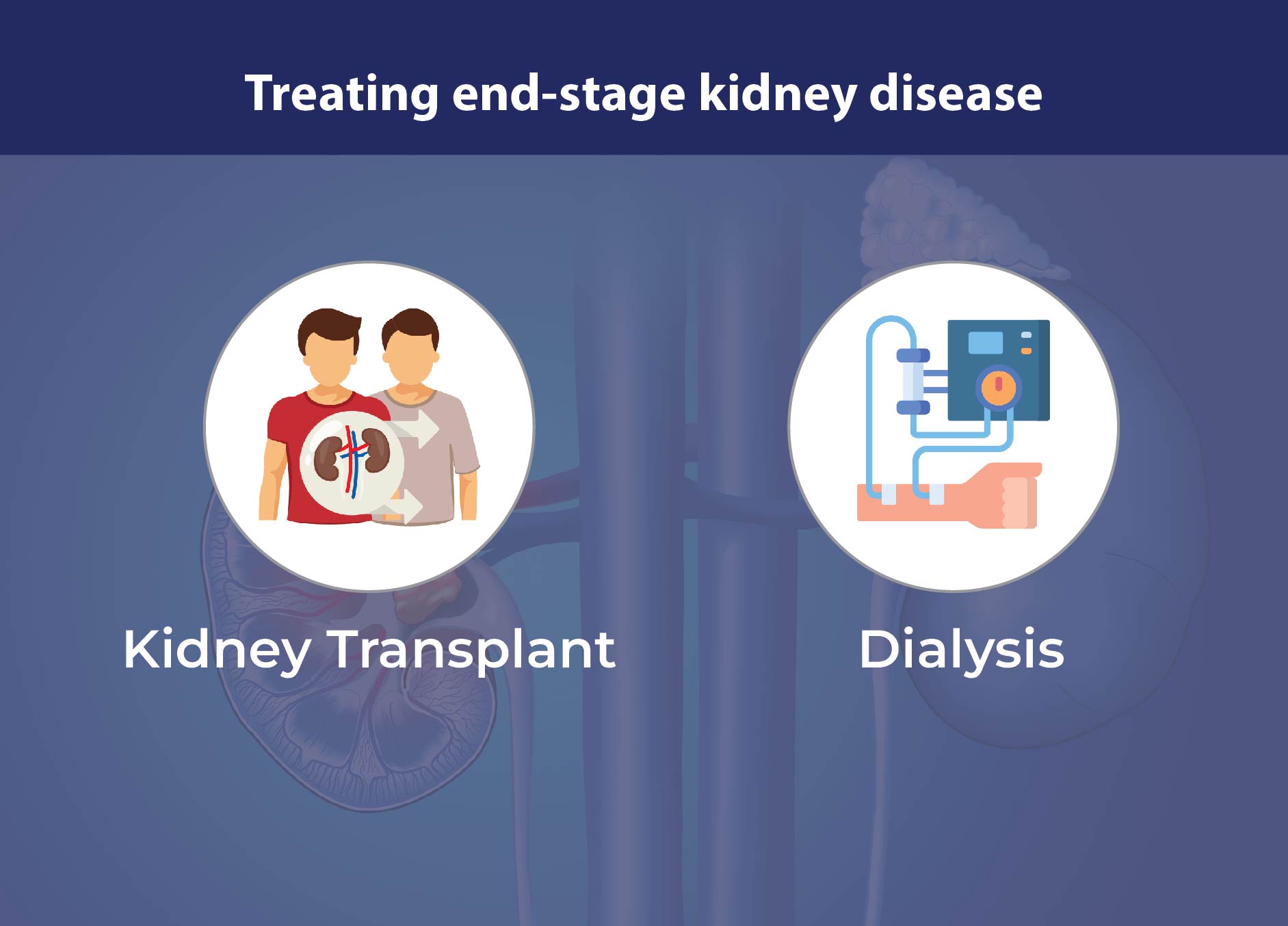Chronic Kidney Disease (CKD)
Chronic Kidney Disease (CKD) develops when the kidneys are unable to
perform the functions of filtering toxins and waste as they should be able to.
Chronic refers to the gradual over time development of kidney disease.
Most CKD cases don't exhibit any symptoms because the disease progresses
slowly. However, CKD leads to a wide range of problems. It is critical to
identify it early and manage it so that the pace of renal function loss can be
managed and the disorder's further progression can be prevented.
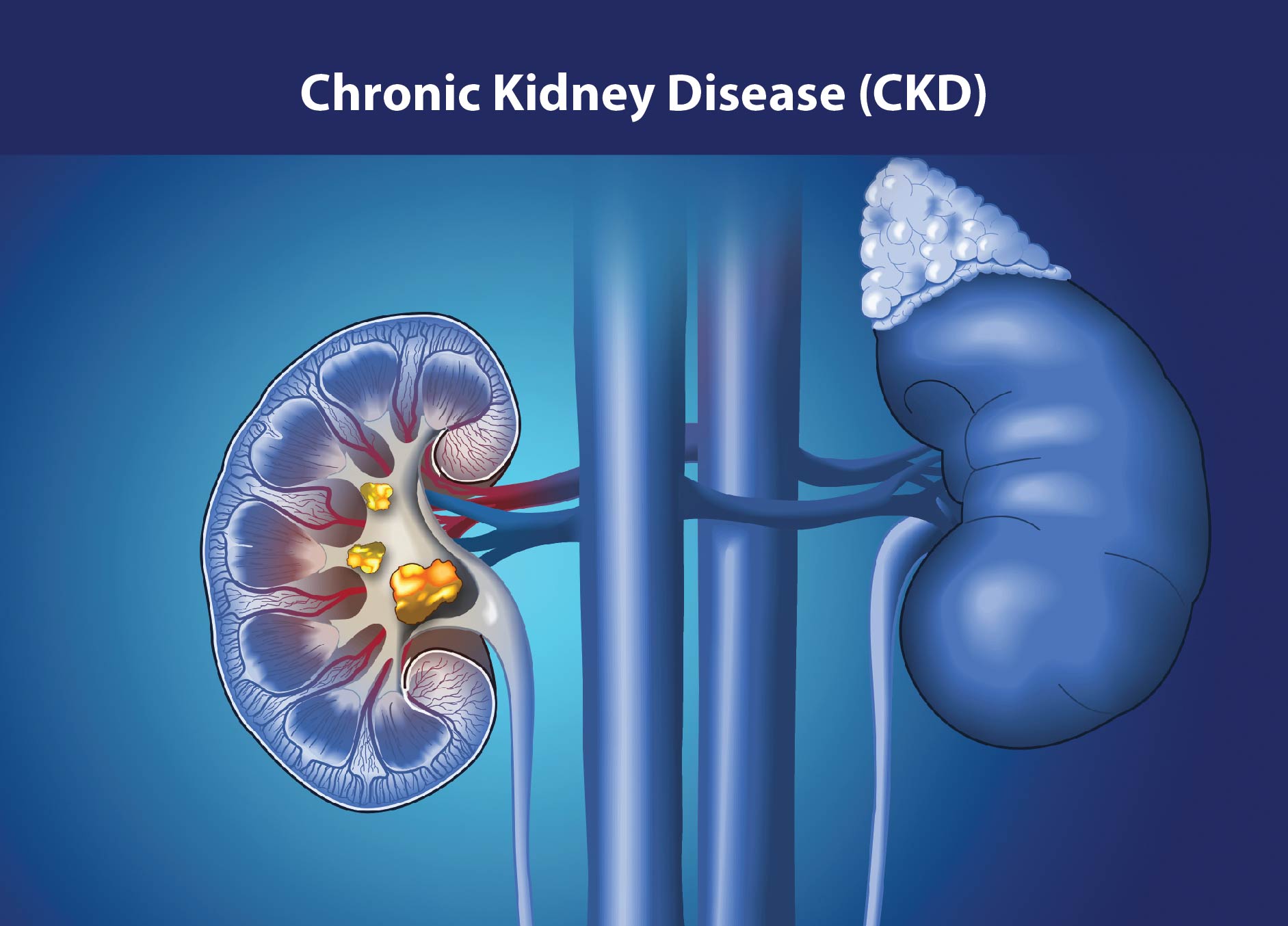
How Kidneys Work and CKD Symptoms
The kidneys are almost the same size and have a bean-like shape. The kidneys carry out the task of removing surplus water, waste, and toxins from the blood to create urine. The body's salt and mineral levels, including calcium, phosphorus, sodium, and potassium, are also balanced by the kidneys.
In the majority of instances, symptoms don't appear until 90% of kidney function has been lost. Blood and urine testing are the sole way to detect any changes in kidney function.
The symptoms may be as follow in progressed kidney ailment:
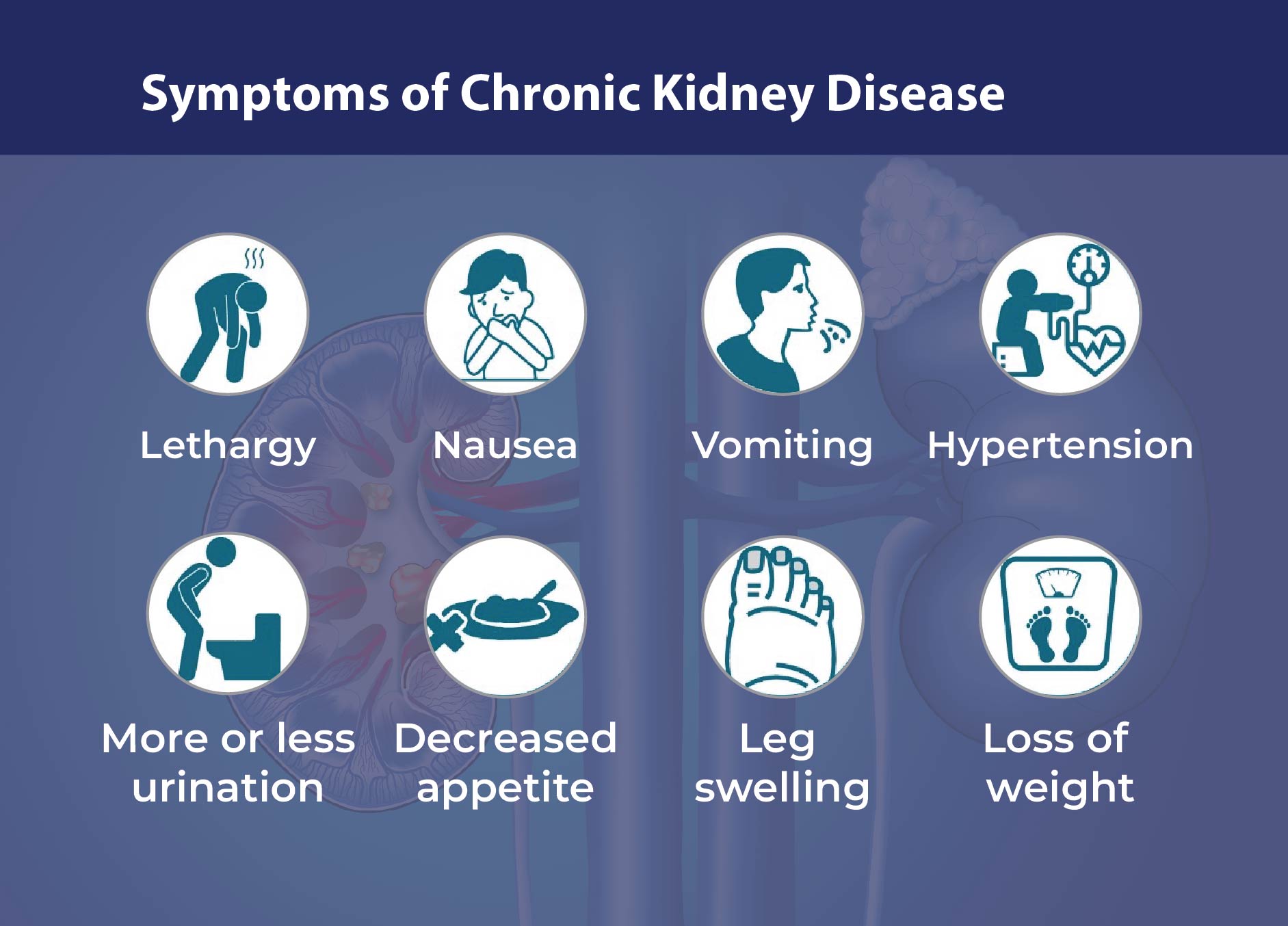
Get in touch with Dr. Vijay Patel, the top kidney specialist in Mumbai, for help and prompt disease management if you encounter any of the aforementioned symptoms,
Causes of CKD and Treatment Options
Chronic kidney disease is characterized by the direct impact of a condition or illness on kidney function, which worsens over months or years. The following illnesses and disorders can result in chronic kidney disease:
- Diabetes Mellitus (Type 1 or Type 2)
- Hypertension (High Blood Pressure)
- Glomerulonephritis, an inflammation of the glomeruli (filtering units of kidney)
- Interstitial Nephritis, an inflammation in the tubules and surrounding structures of kidney.
- Polycystic Kidney Disease or other inherited kidney diseases
- Persistent obstruction of the urinary tract, caused due to other conditions such as enlarges prostate, kidney stones and some cancers
- Vesicoureteral reflux, a condition that causes urine to back up into your kidneys
- Recurrent Kidney infection, also known as pyelonephritis.
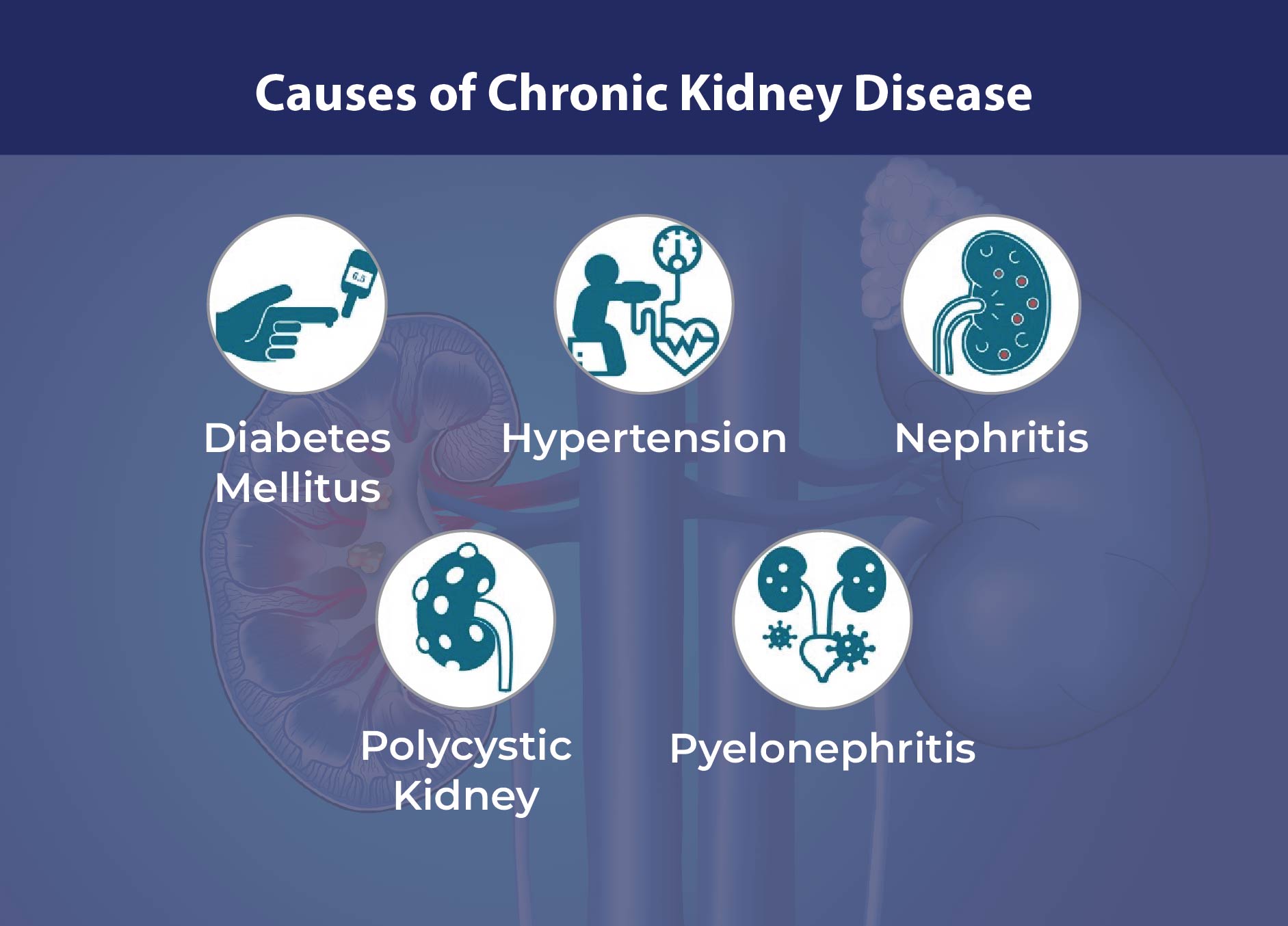
Treatment options for Chronic Kidney Disease
The cause of CKD plays an important role in determining the type of treatment, a patient shall receive. Treatment of CKD mostly comprises of the ways to control signs and symptoms, reduce complications and slow the progression of the disease. In cases, where the kidneys become severely damaged, treatment for end-stage kidney disease is given.
Therefore, speak with Dr. Vijay Patel, the best kidney specialist in Mumbai, to get a better treatment plan that fits your situation.
1. Treating the cause:
Your doctor will focus on the root of your kidney illness to slow or control it. The patient's course of treatment is chosen based on the underlying reason. Even if the underlying cause, such as high blood pressure or diabetes mellitus, has been managed, the kidney damage may still develop.
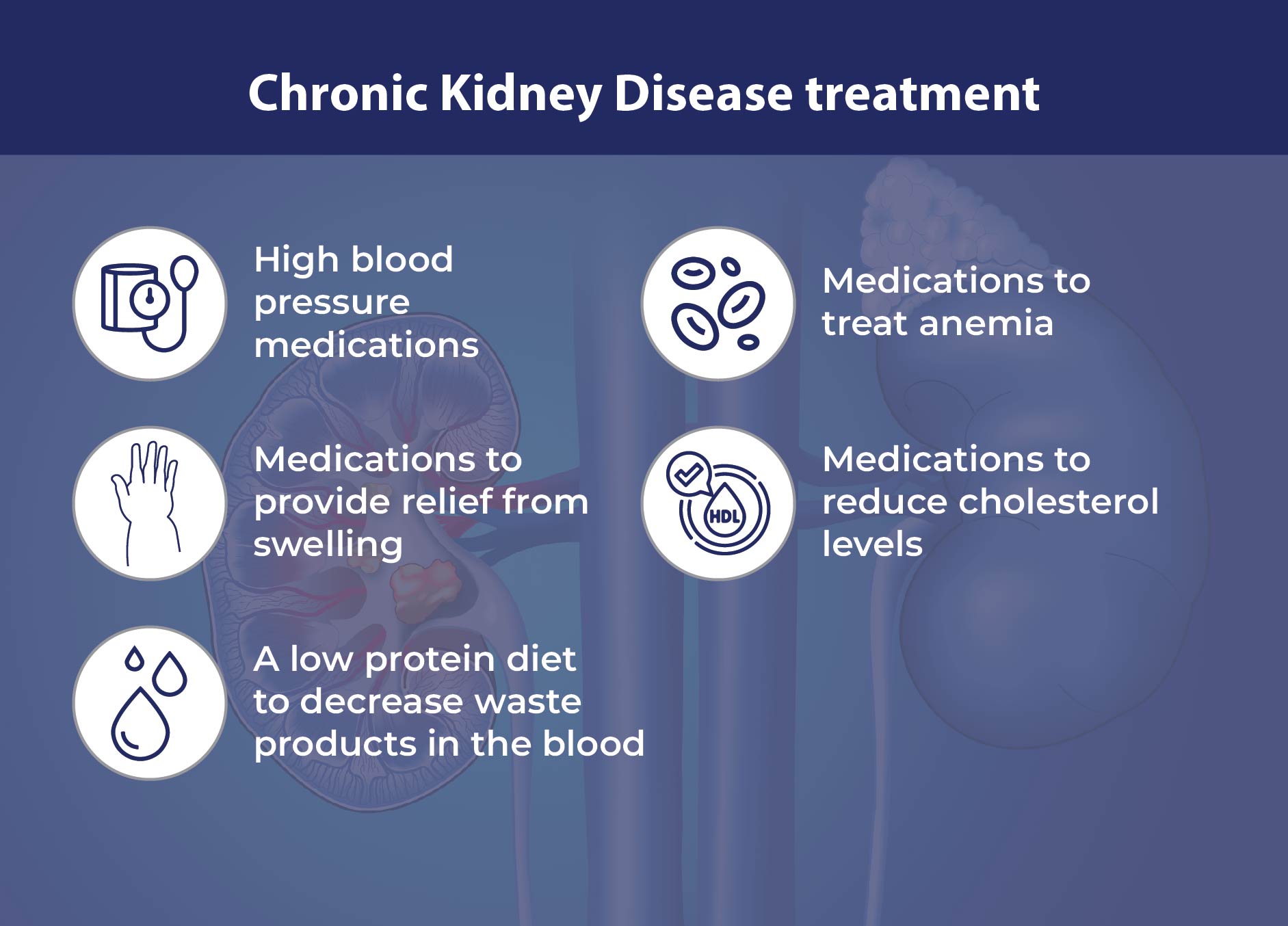
2. Treating complications
Treatments to control kidney disease complications are:
- High blood pressure medications: In order to preserve kidney function, doctors frequently prescribe blood pressure-lowering medications, such as angiotensin-converting enzyme (ACE) inhibitors or angiotensin II receptor blockers, to patients with kidney diseases whose high blood pressure is worsening. The issue with high blood pressure drugs is that they might initially alter electrolyte levels and reduce kidney function, necessitating frequent blood tests to track the patient's status. Therefore, a diuretic and a low-sodium diet are advised by the doctors.
- Medications to provide relief from swelling: Fluid retention is one of the main problems faced by people with chronic kidney disease. This results in swelling of legs and can simultaneously cause high blood pressure. Diuretics can be recommended to maintain the fluid balance in the body.
- Medications to treat anemia: Anemia can cause fatigue and weakness in an individual. Therefore, to increase the production of red blood cells, supplements of the hormone erythropoietin with added iron are preferrable in such situations.
- Medications to reduce cholesterol levels: Medications known as statins are given to reduce the cholesterol levels in people suffering from chronic kidney disease. Because high cholesterol levels can increase the risk of heart disease.
- A low protein diet to decrease waste products in the blood: The doctor advises a low-protein diet since eating foods high in protein might promote an increase in waste product creation, which over time can put a greater burden on the kidneys. Consequently, a low-protein diet is frequently advised to lessen the burden on the kidneys.
3. Treating end-stage kidney disease:
End-stage kidney disease is characterized by a state in which the kidneys are incapable of removing waste and fluid on their own, leading to full or almost complete kidney failure. At that time, dialysis or a kidney transplant are required.
- Dialysis: Dialysis is an artificial procedure for flushing excess fluid and waste from the blood when the kidneys are unable to do so. A machine filters the waste and extra fluid from the blood during hemodialysis. Your abdomen is penetrated with a tiny tube that is then filled with a dialysis solution that collects waste and extra fluid. This procedure is used in peritoneal dialysis. When the dialysis solution is removed from your body over time, the waste products eventually exit the body.
- Kidney Transplant: A kidney transplant involves performing surgery to insert a donor's healthy kidney into your body. Either a deceased donor or a living donor can provide the kidneys that are used for transplant. To keep the body from rejecting the new organ following atransplant, patients must take medications for the rest of their lives. A kidney transplant is not required for those who are not on dialysis.
